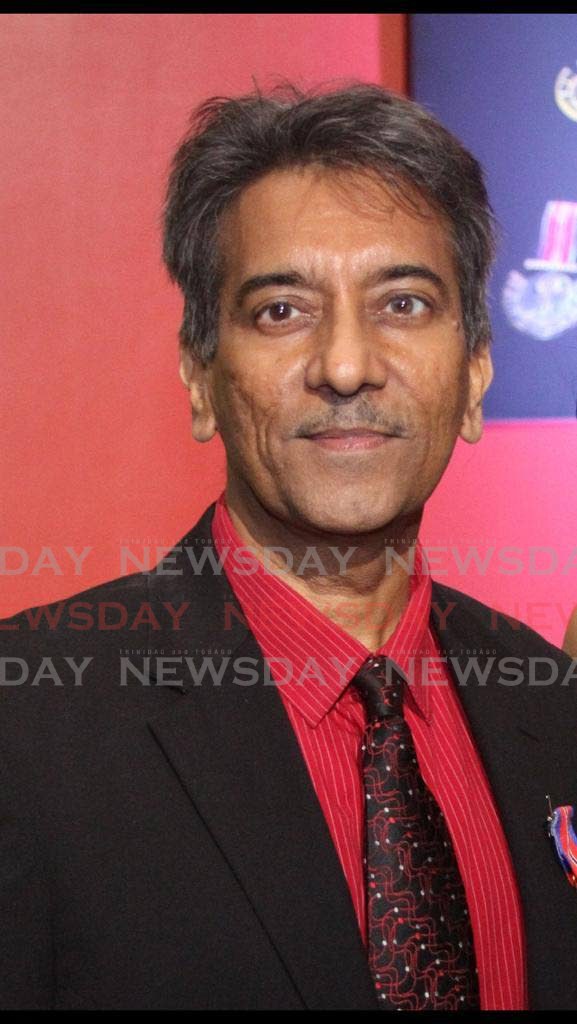Licensed guns – another Wild West?

DR RUSSELL D LUTCHMAN
DR VARMA DEYALSINGH has suggested “arming the citizenry” with guns when he addressed the Senate last week Thursday.
In my professional role, I frequently consider the risk of death or serious harm to other people arising from the use of weapons.
Dr Deyalsingh opened his address by speaking about the mental challenges expected to “hit” Trinidadians/Tobagonians in coming weeks and months. Appropriately, he was using his knowledge and insights as a psychiatrist – a medically qualified doctor.
That said, he went on to say: “...so, what I'm saying is we have to defend ourselves and our families, people may stay at home to get away from the world thinking they are safe in their home and their sanctuaries. They are no longer safe. A caring government would allow people to get firearm user’s licences [FUL] to protect themselves as daily reports say we are sitting ducks...the commissioner of police mentioned that home invasions are increasing. So, I'm saying give persons the access with the proper checks and balances...”
This is when he strayed out of his depth to make the sensationalist suggestion to “arm the sitting-duck citizenry.”
He was cursorily cautious to include with “proper checks and balances.” Knowing what those proper checks and balances would be and how to keep them “proper” is the first big issue. Retired Justice of Appeal Stanley John in January aptly described FUL issuance as “a thriving, well-oiled, white-collar criminal enterprise...under the nose” of then-commissioner of police Gary Griffith.
Recently in the local media, it was reported that 26 people had been charged for corruption and misbehaviour in public office regarding the issuing FULs. Of those, only five have been reported to be members of the public; the rest are members of the TTPS. So much for “proper checks” flying out of the window.
Mental disturbance
and firearms
As a psychiatrist, Dr Deyalsingh would do well to consider more deeply the lawful possession and potential misuse of firearms by the mentally disturbed.
Disturbed individuals span a whole cross-section of people – from the chronically angry, those with a secret agenda for revenge of some sort, those who have been abused and suffer with subclinical post-traumatic mental health problems, to some of the ten per cent (on average) of individuals who, unbeknownst to themselves, suffer with a personality disorder (a clinical entity under F60-F69 of ICD-10, soon to be replaced by ICD-11).
Consider the cultural context of “tabanca,” for example: a man of “unsettled mind” opting for homicidal violence because he “cyah take the rejection.” In the frame of well documented spiralling horrific domestic violence against women, some men of that ilk would probably opt for their “licensed” weapon instead of the “choice cutlass.”
Road rage, all too common from a “bad drive,” could involve more shoot-ups between the holders of licensed guns and others holding unlicensed guns. What about stray bullets hitting other people or vulnerable children caught in the vicinity – as is foreseeable? These are real-world considerations.
Screening and regulation
Screening processes will be heavily dependent on the honesty of applicants (unlikely for a majority) – and any other information that may be plucked from health records or some national database.
If, for example, an applicant for a FUL, of average intelligence, who wanted to exact revenge on some perceived wrongdoer, it is most unlikely they would declare sleep, mood or anger problems – or other problems that might indicate the possibility of a mental disorder.
In the event of successfully traversing the screening processes, nothing prevents a licensed gun-holder from becoming mentally disordered; to the extent that they may – in a fit of rage – use their licensed weapon inappropriately. In America – gun capital of the First World – where there is no true regulation, they are not swift enough to detect those types of people and protectively confiscate their firearms. Therefore, I do not imagine systems in TT will be any better.
Another worry and equally important is the security for firearms stored at home. You do not need to be an expert to imagine rocking in your hammock “minding your own business,” your front door is suddenly kicked open by a gang and you are robbed at gunpoint and forced to hand over your licensed gun – lucky if you survive.
Collateral murder
Can Dr Deyalsingh face up to consoling the distraught parent of a child shot dead as “collateral damage” by a stray bullet from that licensed weapon – that which was supposed to protect? Can he take the blood on his hands?
This is not a simple numbers game, where you say, “Let’s give the people guns and we expect to see serious crime falling by so much per cent.” How many licensed guns need to be introduced into the citizenry to bring down crime and by what acceptable per cent? And further, consider this: At what cost? I am referring to human tragedies, not cost in terms of money.
How much collateral murder is considered acceptable?
Conclusion
Lawmakers should give little weight, or none at all, to Dr Deyalsingh’s opinion on the matter. The people of TT need to apply a better degree of common sense.
The Government’s policy on combating the crime rate and protecting its citizens from harm should not be persuaded to allow people to more easily obtain firearm user’s licences to protect themselves.
In a country where crime is already out of control, should lawmakers be contributing to another Wild West – trading blood for FULs? I don’t think so.
Dr Russell D Lutchman is a consultant forensic psychiatrist in the UK


Comments
"Licensed guns – another Wild West?"